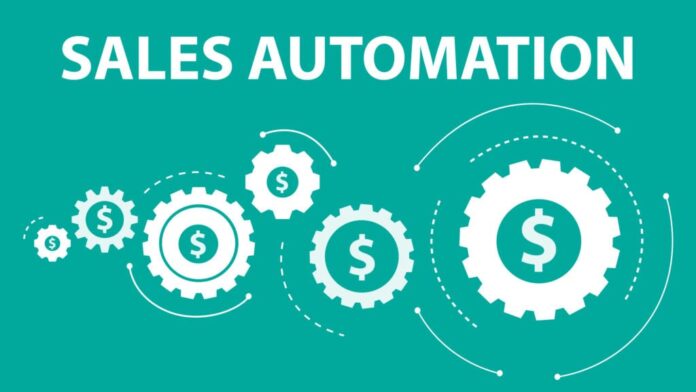The realm of sales is undergoing a transformative shift, largely attributed to the integration of advanced technological solutions. In this context, sales automation emerges as a key driver of this change, especially today.
In the current business environment, where efficiency and speed are paramount, automation in sales processes is no longer a luxury but a necessity. It represents a fundamental change in how businesses approach sales tasks, from lead generation to closing deals.
Understanding and leveraging sales automation becomes crucial for any business looking to stay competitive and responsive to market dynamics.
What are Pros?

Before we go into the pros of implementing this method.
Improved Operational Effectiveness
One of the most prominent advantages of automating sales processes is the significant enhancement in efficiency and productivity it brings. By taking over routine tasks such as data entry, scheduling, and follow-ups, these systems free up sales professionals to concentrate on more critical aspects such as strategy development and customer engagement. This shift from mundane tasks to higher-value activities not only optimizes the use of time and resources but also leads to an increase in overall sales performance.
Consistent and Accurate Execution
Accuracy and consistency are critical in sales operations, and automation plays a crucial role in achieving these. By minimizing the likelihood of human errors, these systems ensure that every customer interaction and internal process is executed with precision. This consistency is vital for maintaining a professional image and building trust with clients, leading to better business outcomes.
Evidence-Based Decision Making
In today’s data-centric business environment, making informed decisions based on accurate data is key. Automation tools come equipped with advanced analytics capabilities, providing sales teams with deep insights into customer behaviors and market trends. This data-driven approach facilitates strategic planning and helps businesses stay ahead in a competitive market.
How About Cons?

Now, let us talk about the downsides.
Potential Over-Reliance
While automation brings many benefits, over-reliance on these systems can pose risks. Excessive dependence on technology might lead to a diminished capacity for human judgment and problem-solving in complex sales scenarios. Maintaining a balance between automated processes and human intuition is crucial for effective sales management.
Implementation Challenges
Implementing and integrating automation tools into existing sales processes can be challenging. It often requires a significant investment of time and resources, not just financially but also in terms of staff training and system customization. These hurdles can be particularly daunting for small to medium-sized businesses with limited resources.
Potential Loss of Personal Touch
Another concern with automation is the risk of losing the personal touch in customer interactions. In an era where personalized customer service is highly valued, it’s vital to strike a balance between efficiency and personalization. Businesses must find ways to ensure that automation enhances rather than detracts from customer relationships.
How to Implement it Properly?
Now that we know both sides of the coin, let us talk about the implementation steps.
Choosing the Right Tools
Selecting appropriate automation tools is critical for successful implementation. Businesses need to evaluate various options based on their specific needs, considering factors like compatibility with existing systems, scalability, and user-friendliness. The right tools should align with the business’s objectives and enhance its sales processes.
Training and Involvement of Sales Teams
Effective adoption of automation tools hinges on the training and involvement of sales teams. Ensuring that staff are well-trained and comfortable with the new systems is essential for maximizing their benefits. Involving the team in the selection and implementation process can also lead to better engagement and usage of the tools.
Continuous Evaluation and Adaptation
The sales landscape is continually evolving, making it necessary for businesses to regularly evaluate and adapt their automation strategies. This involves assessing the effectiveness of the tools, staying abreast of technological advancements, and adjusting strategies to meet changing market demands.
What Benefits are to be Expected?

Now we want to discuss what your organization can expect as a result of the implementation.
Long-Term Gains
One of the most significant advantages of implementing sales automation is the promise of long-term financial and operational gains. By streamlining various aspects of the sales process, automation reduces the need for manual interventions, which often are time-consuming and prone to errors.
This streamlining of operations leads to substantial cost savings, as resources can be reallocated to more strategic areas of the business. Moreover, the reduction in manual tasks minimizes the likelihood of errors, further cutting down on costs related to rectifying these mistakes.
These cost efficiencies are not just short-lived; they have a compounding effect over time. As the system becomes more integrated and refined, the savings and efficiencies become more pronounced. This translates into improved bottom-line results for the business.
Operational effectiveness is enhanced as processes become more streamlined and agile. The ability to quickly adapt and respond to market changes without the burden of cumbersome manual processes is a significant competitive advantage in today’s fast-paced business environment.
Strengthening Customer Relationships
Automated tools can significantly enhance customer engagement and relationship management. By facilitating timely and targeted communication, businesses can maintain a high level of interaction with their clients. Improved customer service through automation helps in building loyalty and fostering long-term relationships.
Gaining a Competitive

In the competitive landscape of modern business, automation offers a significant strategic advantage. By optimizing sales processes, companies can achieve a level of operational efficiency and effectiveness that sets them apart from competitors.
It includes streamlining lead generation, accelerating sales cycles, and providing detailed analytics on sales performance. The use of data-driven insights is particularly powerful. By analyzing sales data, companies can uncover patterns and trends that inform more effective sales strategies.
These insights can guide everything from product development to marketing campaigns, allowing businesses to anticipate market needs and respond more effectively than their competitors.
The Bottom Line
The integration of automation into sales processes represents a significant step forward in how businesses approach and manage their sales activities. The role of sales automation in enhancing efficiency, accuracy, and strategic decision-making becomes increasingly evident. While there are challenges to navigate, the benefits it offers are substantial and far-reaching.








